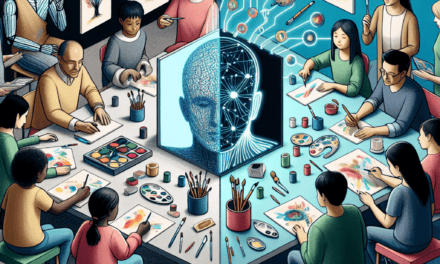The Benefits of Addressing Depression in Adolescence
Adolescence is a critical period of development characterized by significant physical, emotional, and social changes. Unfortunately, it is also a time when many young people experience mental health challenges, particularly depression. According to the World Health Organization, approximately 10-20% of adolescents globally experience mental health disorders, with depression being one of the most prevalent. Addressing depression during this formative stage is crucial, not only for the well-being of the individual but also for society as a whole. This article explores the multifaceted benefits of addressing depression in adolescence, focusing on five key areas: early intervention, academic performance, social relationships, long-term mental health, and societal impact.
1. Early Intervention: A Pathway to Recovery
Early intervention is one of the most significant benefits of addressing depression in adolescents. The earlier depression is identified and treated, the better the outcomes for the individual. Research indicates that early intervention can lead to a reduction in the severity of symptoms and a lower likelihood of recurrence later in life.
One of the primary reasons early intervention is effective is that it allows for the implementation of coping strategies and therapeutic techniques before the condition worsens. Cognitive Behavioral Therapy (CBT), for instance, has been shown to be particularly effective in treating adolescent depression. A study published in the journal JAMA Psychiatry found that adolescents who received CBT showed significant improvements in their depressive symptoms compared to those who did not receive treatment.
Moreover, early intervention can help adolescents develop resilience. By learning how to manage their emotions and cope with stressors, young people can build a toolkit of skills that will serve them throughout their lives. This proactive approach not only addresses the immediate symptoms of depression but also equips adolescents with the tools they need to navigate future challenges.
- Identification of Symptoms: Recognizing the signs of depression early can lead to timely intervention. Symptoms may include persistent sadness, irritability, changes in appetite, and withdrawal from social activities.
- Access to Resources: Early intervention often provides adolescents with access to mental health resources, including counseling and support groups, which can be crucial for recovery.
- Parental Involvement: Engaging parents in the treatment process can enhance the effectiveness of interventions. Parents can learn how to support their children and create a nurturing environment conducive to healing.
In summary, early intervention not only alleviates the immediate symptoms of depression but also fosters long-term resilience and coping skills, making it a vital component of adolescent mental health care.
2. Academic Performance: The Ripple Effect of Mental Health
Depression can have a profound impact on an adolescent’s academic performance. Studies have shown that students with depression often experience difficulties in concentration, memory, and motivation, which can lead to declining grades and increased absenteeism. Addressing depression can significantly improve academic outcomes, creating a positive feedback loop that benefits both the individual and the educational system.
For instance, a study conducted by the National Institute of Mental Health found that adolescents with untreated depression were more likely to drop out of school compared to their peers. Conversely, those who received appropriate treatment showed marked improvements in their academic performance. This correlation underscores the importance of integrating mental health support within educational settings.
Schools that implement mental health programs often see a decrease in behavioral issues and an increase in overall student engagement. Programs that focus on social-emotional learning (SEL) have been particularly effective. SEL teaches students skills such as emotional regulation, empathy, and effective communication, which can mitigate the effects of depression and enhance academic performance.
- Improved Concentration: Addressing depression can lead to better focus and cognitive function, allowing students to engage more fully in their studies.
- Increased Attendance: Treatment for depression often results in improved attendance rates, as students feel more motivated to attend school.
- Enhanced Social Skills: As adolescents learn to manage their emotions, they often develop better relationships with peers and teachers, creating a more supportive learning environment.
In conclusion, addressing depression in adolescents not only enhances their mental health but also leads to improved academic performance, which can have lasting effects on their future opportunities and success.
3. Social Relationships: Building Stronger Connections
Adolescence is a time when social relationships become increasingly important. However, depression can severely hinder a young person’s ability to form and maintain healthy relationships. By addressing depression, adolescents can improve their social skills and build stronger connections with peers, family, and mentors.
Depression often leads to social withdrawal, making it difficult for adolescents to engage in social activities or seek support from friends and family. This isolation can exacerbate feelings of loneliness and despair. However, when depression is addressed, adolescents are more likely to re-engage with their social circles and develop meaningful relationships.
Research has shown that adolescents who receive treatment for depression often report improved relationships with their peers. For example, a study published in the journal Child and Adolescent Mental Health found that adolescents who participated in group therapy not only experienced a reduction in depressive symptoms but also reported increased feelings of connectedness and support from their peers.
- Improved Communication Skills: Therapy can help adolescents learn how to express their feelings and needs more effectively, leading to healthier interactions with others.
- Increased Empathy: As adolescents work through their own emotional challenges, they often develop a greater understanding of others’ struggles, fostering deeper connections.
- Support Networks: Addressing depression can help adolescents build a network of supportive friends and family members who can provide encouragement and understanding.
In summary, addressing depression in adolescence can lead to stronger social relationships, which are essential for emotional well-being and personal development. By fostering connections with others, adolescents can create a support system that enhances their resilience and overall quality of life.
4. Long-Term Mental Health: Breaking the Cycle
One of the most compelling reasons to address depression in adolescence is its potential to influence long-term mental health outcomes. Adolescents who experience untreated depression are at a higher risk for developing chronic mental health issues in adulthood, including anxiety disorders, substance abuse, and recurrent depressive episodes. By intervening early, we can break this cycle and promote healthier futures for young people.
Research indicates that early treatment of adolescent depression can lead to significant reductions in the risk of future mental health issues. A longitudinal study published in the journal Psychological Medicine found that adolescents who received treatment for depression were less likely to experience recurrent episodes in adulthood compared to those who did not receive treatment.
Moreover, addressing depression early can lead to improved coping strategies that can be utilized throughout life. Adolescents who learn how to manage their emotions and stressors effectively are better equipped to handle the challenges of adulthood, including work-related stress, relationship issues, and parenting responsibilities.
- Resilience Building: Early intervention fosters resilience, enabling adolescents to bounce back from setbacks and navigate life’s challenges more effectively.
- Reduced Stigma: Addressing mental health issues openly can help reduce the stigma associated with seeking help, encouraging future generations to prioritize their mental well-being.
- Holistic Development: By addressing mental health, adolescents can achieve a more balanced development, encompassing emotional, social, and cognitive growth.
In conclusion, addressing depression in adolescence is crucial for promoting long-term mental health. By intervening early, we can help young people develop the skills and resilience they need to thrive throughout their lives.
5. Societal Impact: A Collective Responsibility
The benefits of addressing depression in adolescence extend beyond the individual; they have far-reaching implications for society as a whole. Mental health issues in adolescents can lead to increased healthcare costs, lost productivity, and a range of social problems. By prioritizing mental health care for young people, we can create a healthier, more productive society.
Investing in mental health services for adolescents can lead to significant economic benefits. According to a report by the World Health Organization, every dollar invested in mental health treatment yields a return of four dollars in improved health and productivity. This statistic highlights the importance of addressing mental health issues early, as it not only benefits individuals but also contributes to the overall well-being of society.
Moreover, addressing adolescent depression can lead to reduced rates of crime and violence. Research has shown that untreated mental health issues can contribute to antisocial behavior and criminal activity. By providing support and treatment for young people struggling with depression, we can help reduce these negative outcomes and promote safer communities.
- Economic Benefits: Investing in mental health care can lead to reduced healthcare costs and increased productivity, benefiting the economy as a whole.
- Community Well-Being: Addressing adolescent depression can lead to healthier communities, as young people are less likely to engage in risky behaviors or criminal activity.
- Future Generations: By prioritizing mental health care for adolescents, we can create a culture that values mental well-being, leading to healthier future generations.
In summary, addressing depression in adolescence is not just a personal issue; it is a societal responsibility. By investing in mental health care for young people, we can create a healthier, more productive society that benefits everyone.
Conclusion
Addressing depression in adolescence is a multifaceted issue that carries significant benefits for individuals and society alike. Early intervention can lead to improved mental health outcomes, enhanced academic performance, stronger social relationships, and long-term resilience. Furthermore, the societal impact of prioritizing adolescent mental health cannot be overstated; it has the potential to reduce healthcare costs, improve community well-being, and foster a culture that values mental health.
As we move forward, it is essential to continue advocating for mental health resources and support systems for adolescents. By recognizing the importance of addressing depression during this critical developmental stage, we can help young people thrive and build a brighter future for themselves and society as a whole.



